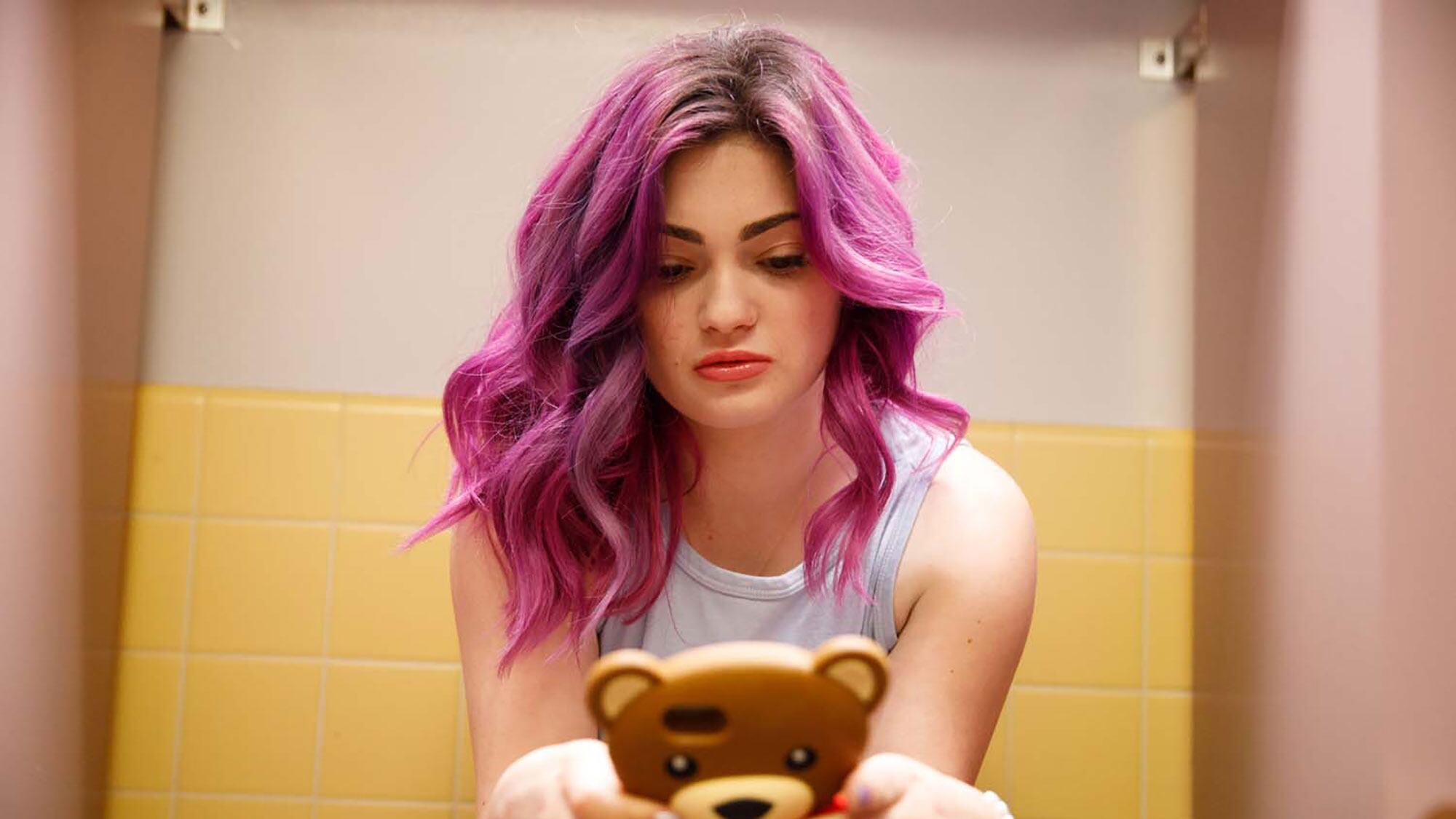Nick Richey can recall in detail the time his mom defined eviction for him. It was about to happen to them. It was her 30th birthday. Twelve-year-old Nick had bought her a pair of earrings from 7-Eleven for the occasion. Scarring as that day in Vancouver, Wash., was decades ago, at least there were no distracting airplanes.
Smash-cut to a Venice Beach alley, and Richey has adapted his mother's explanation and confession into the closing monologue of his debut feature, Low Low. Los Angeles stands in for Vancouver, and actor Elaine Hendrix plays the mother at the end of her rope. This scene punctuates the film's main theme—flat on your ass (or "low low," as it were) with nowhere to go but up. The theme held true that day on set.
"There was an antique airplane show at the Santa Monica airport, and we just couldn't get clean audio," Richey says, remembering his directorial nightmare. "I wanted to kill myself. Every time Elaine would start her monologue, a P-51 Mustang would go beeeyooowww!"
Compounding matters, it was the final day on set for Hendrix, certainly the low-budget indie's most experienced and recognizable actor (from 1998's The Parent Trap and a dozen network and basic cable TV shows). On a financial leash Richey likens to the "craft services budget" for the fellow 2019 female-led high school movie Booksmart, he was sure Low Low would have to fly Hendrix back to L.A. to record the crucial audio in post-production. Hendrix, though, was a generous pro. She remained in the alley to deliver her dialogue only for the reaction shots. That's when fate finally killed the aerial motors. Hendrix noticed the silence, teed up the speech one last time, and Low Low snagged the single take that becomes arguably its best moment.
That day exemplified the luck and professionalism it takes to push a genuine indie film across the finish line, says Richey, who graduated from Fort Vancouver High School in 2001 before studying economics at Lewis & Clark College, hosting Portland's version of the Kids' WB children's programming block, and eventually moving to L.A. The writer-director drew on both himself and old friends for this dramatic snapshot of low-income young women, a demographic Richey thinks is still underrepresented on screen.
"I will betray my best friend for a mediocre dude, or for a better-looking friend," Richey recounts the high school movie tropes he sought to counteract. "The young women I grew up with were rough, strong, loyal—they were nothing like that."
The four friends at the center of Low Low are bonded tight, but conflicted over if, when or how it's appropriate to look beyond their circumstances and, in turn, sever those bonds. Somewhere between much harsher Richard Linklater and heavily humanized (not to mention sanitized) Harmony Korine (Spring Breakers, Kids), Low Low takes on an endless-day quality as protagonist Ryan and company go on an ill-timed bender the night before their de facto graduation. With denial and dread underneath the euphoria, one of the film's more challenging themes is Ryan seeming to dash her own hopes before life does it for her.
"I definitely think [Ryan] has this fear of even saying what she wants," says Ali Richey, star of the movie and spouse to Nick. "She has a fear of becoming her mom, but she's making these choices, sabotaging herself, that would lead her down the same path."
Though the occasional palm tree betrays the Vancouver setting for Southern California, Low Low does capture the depressive blankness of suburban poverty. Shot with flaring, anamorphic lenses, the film's bleary apartment parties seem to shrink even further from the excess of concrete and open air just outside. And though Portland makes no cameo in this Vancouver story, Nick Richey does think the metropolis casts a psychological shadow.
"Growing up, they felt so blatantly separated," he says. "Even going to college in Portland felt like a jump. I wanted to capture this smaller-town mentality, where even when you're next to the metropolis you don't feel like you're a part of it. It feels so much bigger than what you're capable of."
SEE IT: Low Low streams on Amazon Prime, Google Play and YouTube.

